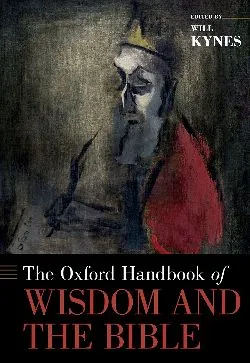
I can’t say that I was particularly impressed with this book: it seems to be doing too much at once. It is an edited collection, and it does attempt to be comprehensive, but it doesn’t quite do it. On one hand, this seems to be a collection of essays about the history, themes, textual analysis, origin, etc. of the wisdom texts of the Old Testament/Hebrew Bible (esp. Job, Proverbs, Ecclesiastes, Song of Solomon, and the Wisdom of Sirach). On the other hand, the editor is skeptical that there is such a thing as a wisdom tradition in the Old Testament. He asks: to what extent is “wisdom” a genre at all? Is it comparable to the Pentateuch, Historical Books, Prophets, Gospels, or Epistles? I think that he’s inclined to say no.
The good is that the book does a great job of contextualizing the wisdom tradition in light of recent evidence from the Nile River valley and Mesopotamia. The overviews and more thematic discussions of individual books here are quite good: I was especially interested in the Wisdom of Sirach, which is a text that I was previously unfamiliar with, Job, and Ecclesiastes. There’s also good writing looking at continuities (or retroactive readings) of wisdom texts in light of ancient Greek philosophy, especially during the Hellenistic period. One of the later essays puts the Solomonic collection in conversation with Plato’s Timaeus, which I found fascinating.
However, it was unclear why there is such a concerted challenge to the concept of wisdom literature as a genre. What’s at stake here, and what would be the benefit of doing so? Would it be better to read these books as disconnected, individual books? It might be, but claims of Solomon’s authorship seems to be a connecting thread through some of the wisdom texts: Job and the Wisdom of Sirach are the two books that don’t fit into it. And, admittedly, Job is a fundamentally different text than any other book in the Bible.
I do very much see value in labeling these books as wisdom texts. They are directed at a more secular, ideally universal, sense of understanding w/r/t the world. There are references to God, of course, and one of the main themes–as other essays rightfully point out–is that we must be God-fearing. Still, they say far more than that: they are therapeutic texts in ways that the Pentateuch and Historical Books are not. They do fundamentally different work than the historical books, and there is a unity involved.
I’m not sure what other writings there are on the wisdom texts of the Bible, but I wouldn’t consult this Oxford Handbook first.